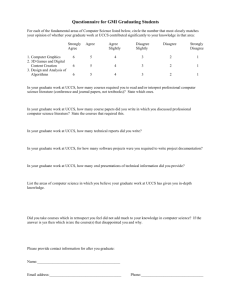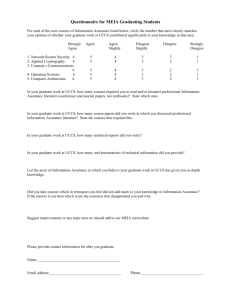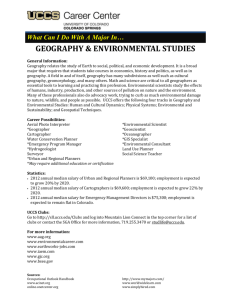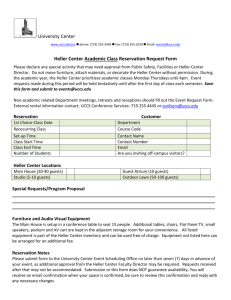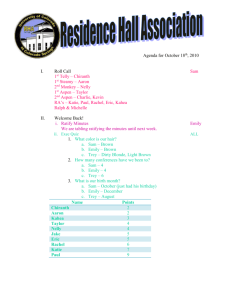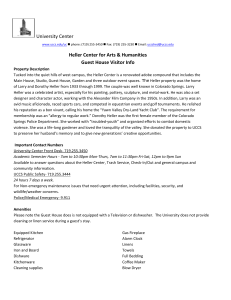Institutional Plan to Combat Unauthorized Distribution of
advertisement
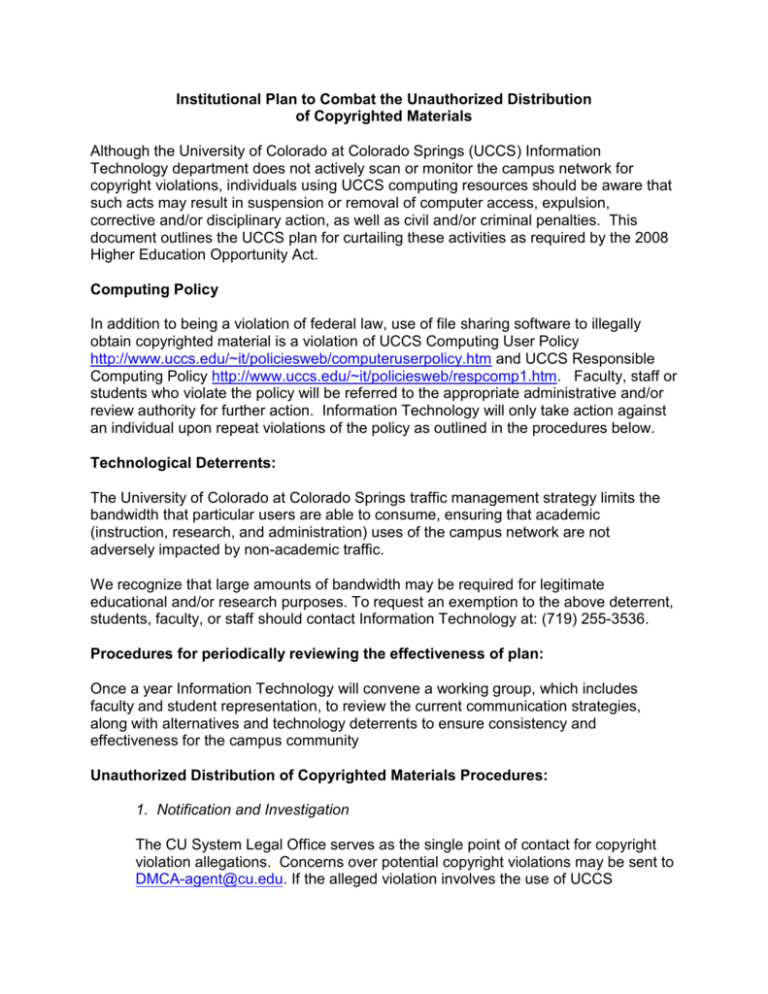
Institutional Plan to Combat the Unauthorized Distribution of Copyrighted Materials Although the University of Colorado at Colorado Springs (UCCS) Information Technology department does not actively scan or monitor the campus network for copyright violations, individuals using UCCS computing resources should be aware that such acts may result in suspension or removal of computer access, expulsion, corrective and/or disciplinary action, as well as civil and/or criminal penalties. This document outlines the UCCS plan for curtailing these activities as required by the 2008 Higher Education Opportunity Act. Computing Policy In addition to being a violation of federal law, use of file sharing software to illegally obtain copyrighted material is a violation of UCCS Computing User Policy http://www.uccs.edu/~it/policiesweb/computeruserpolicy.htm and UCCS Responsible Computing Policy http://www.uccs.edu/~it/policiesweb/respcomp1.htm. Faculty, staff or students who violate the policy will be referred to the appropriate administrative and/or review authority for further action. Information Technology will only take action against an individual upon repeat violations of the policy as outlined in the procedures below. Technological Deterrents: The University of Colorado at Colorado Springs traffic management strategy limits the bandwidth that particular users are able to consume, ensuring that academic (instruction, research, and administration) uses of the campus network are not adversely impacted by non-academic traffic. We recognize that large amounts of bandwidth may be required for legitimate educational and/or research purposes. To request an exemption to the above deterrent, students, faculty, or staff should contact Information Technology at: (719) 255-3536. Procedures for periodically reviewing the effectiveness of plan: Once a year Information Technology will convene a working group, which includes faculty and student representation, to review the current communication strategies, along with alternatives and technology deterrents to ensure consistency and effectiveness for the campus community Unauthorized Distribution of Copyrighted Materials Procedures: 1. Notification and Investigation The CU System Legal Office serves as the single point of contact for copyright violation allegations. Concerns over potential copyright violations may be sent to DMCA-agent@cu.edu. If the alleged violation involves the use of UCCS computers or equipment, the UCCS IT department will investigate the allegation and attempt to determine the identity of the user of the computer. Once the user has been identified, a notification containing all allegation and identifiable information will be sent to their UCCS email account and the appropriate official(s) for appropriate policy violation action as follows: Students: Director of Judicial Affairs Housing Administration if applicable Faculty/Staff: Department Administrator and/or Chair The official(s) will provide a response that outlines the action taken in response to the allegation. IT will document the investigation and outcome in order to monitor for repeat violators. In the case of student violations, the student is given 5 days to respond to the violation. If the student fails to respond within 5 days, their access to the UCCS network will be suspended until a response is received. 2. Second Violation Individuals who have been found in violation of policy a second time shall immediately have their UCCS computer account disabled. In order to restore their account, the individual must provide a written response to IT and the appropriate official(s) that they understand the extent of legal risk that the activity poses to UCCS and agree to abide by UCCS Computing User and Responsible Computing Policies in the future. This action does not preclude the appropriate official(s) from using other appropriate management techniques and/or sanctions, such as the Human Resources performance planning process to curtail further violations. 3. Third Violation Individuals who violate UCCS Computing User and Responsible Computing Policies a third time shall immediately have their UCCS computer account disabled. Such revocation of privileges is considered permanent unless restoration is petitioned by the appropriate official(s). The petition will be reviewed and decided by the Associate Director in the Office of Residence Life in the case of students who live in the residence halls, the Director of Judicial Affairs in the case of students who do not live in the residence halls, or Human Resources in the case of staff/faculty violations. Communication and Awareness UCCS utilizes a number of mediums to promote awareness and educate faculty, staff and students on the Computing User Policy and the Responsible Computing Policy. Such examples include: 1. Annual Campus Notice IT provides an annual notice to all faculty, staff and students regarding the illegality of obtaining or distributing copyrighted material without proper authorization. The notice summarizes the procedures used in investigations, as well as potential penalties and sanctions for copyright violations. Hyperlinks to websites that contain additional educational information are also provided in the notice. 2. Faculty and Staff Orientation IT provides awareness of Information Technology policies for all new Faculty and staff who begin working at UCCS. 3. Student Orientation New students at UCCS are given information at orientation that provides information on IT policies and illegally using file sharing software used to obtain and/or distribute copyright materials. 4. Faculty and Staff Training New faculty and staff at UCCS are required to take mandatory training to demonstrate awareness and understanding of University policy. Such training includes information technology security, advanced security, and ethics. Download Alternatives UCCS will offer alternative downloads to the extent practicable and as they are identified. Currently, UCCS Information Technology does not believe an alternative exists that fits within our current budget and resource constrained environment.
